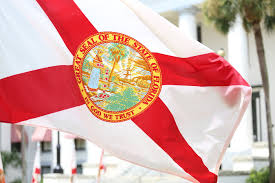
Breaking News
 Steve Witkoff says they are close to finishing "a prosperity agreement" for Ukraine,...
Steve Witkoff says they are close to finishing "a prosperity agreement" for Ukraine,...
 NOW - Starmer says a declaration of intent has been signed...
NOW - Starmer says a declaration of intent has been signed...
 Remarks at the New Jersey Bankers Association, Jersey City, New Jersey
Remarks at the New Jersey Bankers Association, Jersey City, New Jersey
Top Tech News
 The First Production All-Solid-State Battery Is Here, And It Promises 5-Minute Charging
The First Production All-Solid-State Battery Is Here, And It Promises 5-Minute Charging
 See inside the tech-topia cities billionaires are betting big on developing...
See inside the tech-topia cities billionaires are betting big on developing...
 Storage doesn't get much cheaper than this
Storage doesn't get much cheaper than this
 Laser weapons go mobile on US Army small vehicles
Laser weapons go mobile on US Army small vehicles
 EngineAI T800: Born to Disrupt! #EngineAI #robotics #newtechnology #newproduct
EngineAI T800: Born to Disrupt! #EngineAI #robotics #newtechnology #newproduct
 This Silicon Anode Breakthrough Could Mark A Turning Point For EV Batteries [Update]
This Silicon Anode Breakthrough Could Mark A Turning Point For EV Batteries [Update]
 Travel gadget promises to dry and iron your clothes – totally hands-free
Travel gadget promises to dry and iron your clothes – totally hands-free
 Perfect Aircrete, Kitchen Ingredients.
Perfect Aircrete, Kitchen Ingredients.
 Futuristic pixel-raising display lets you feel what's onscreen
Futuristic pixel-raising display lets you feel what's onscreen
 Cutting-Edge Facility Generates Pure Water and Hydrogen Fuel from Seawater for Mere Pennies
Cutting-Edge Facility Generates Pure Water and Hydrogen Fuel from Seawater for Mere Pennies
Florida Bill Would Legally Recognize Blockchain Signatures, Smart Contracts

A lawmaker in Florida has introduced a bill that, if passed, would create a legal foundation for blockchain data and smart contracts in the U.S. state.
House Bill 1357 introduces multiple stipulations that blockchain ledgers and smart contracts be treated as legally-binding methods of data storage – provided that such measures do not break any pre-existing laws or regulations.
Notably, the bill states that a "record or contract that is secured through blockchain technology is in an electronic form and is an electronic record," and confirms that a signature recorded through a blockchain also qualifies as a valid electronic signature.
As a result of these qualifications, the bill outlines that, if a person uses a blockchain to secure interstate or foreign commercial ventures, it would not impact ownership rights. In other words, if someone used a blockchain ledger to store information, the bill would legally recognize that person's rights to that information.

 Karl Hess Toward Liberty
Karl Hess Toward Liberty

